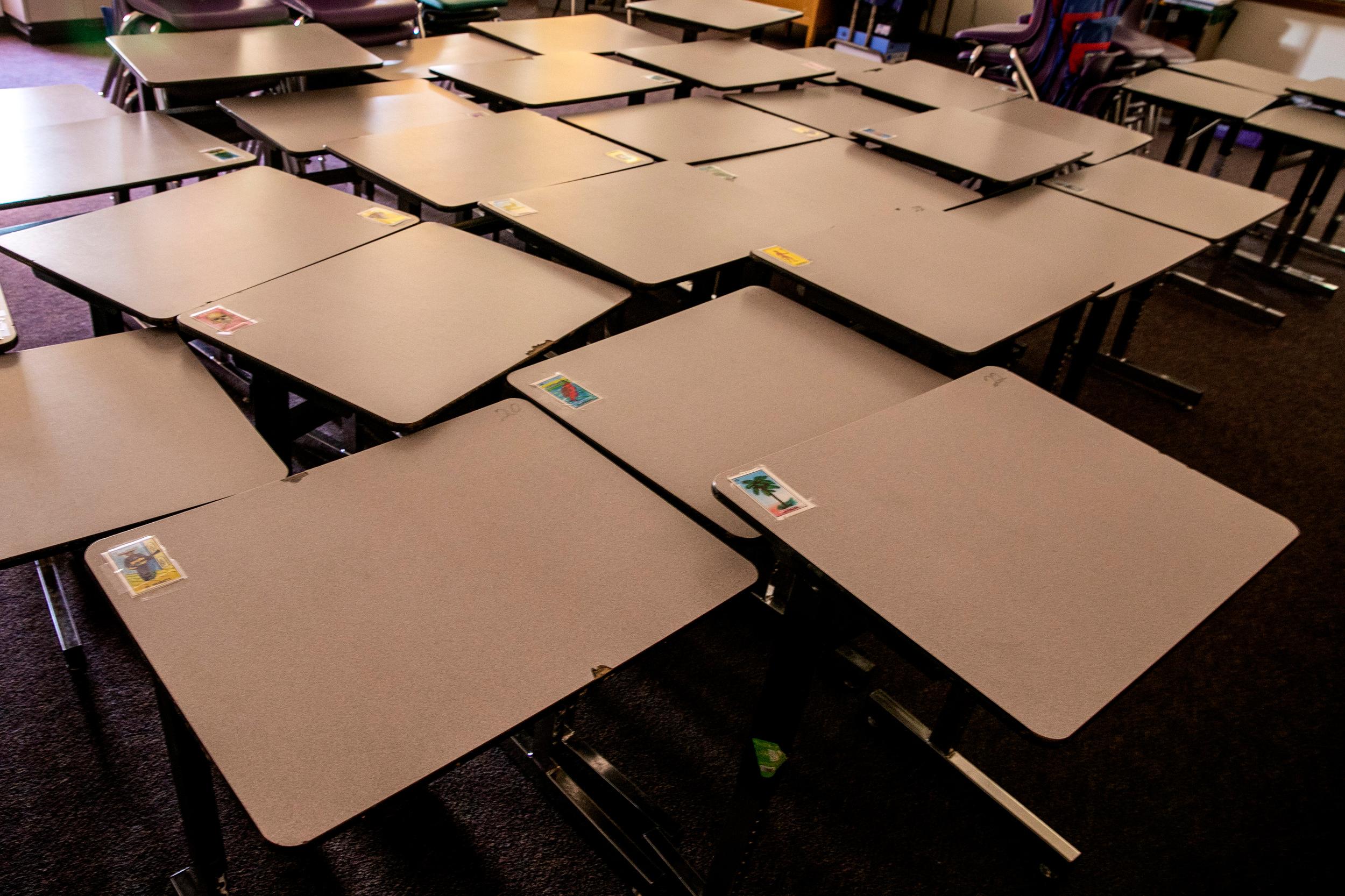
When Melanie’s two sons began school this week, they did it from home. She and her husband asked their kids if they wanted to go to classes in-person.
“They said, ‘There’s no way I could wear a mask all day,’” Melanie said.
Her fifth-grader is on the autism spectrum and is sensitive to textures. Her third-grader has ADHD and deals with impulsivity. CPR News is only using Melanie’s first name to protect her family’s privacy.
She watched her oldest son as he had his first physical therapy since the pandemic began in their backyard. He was, of course, wearing a mask.
“In a matter of 10-minutes, it was on his nose. It was on the top of his head. He was playing with it. He was rolling around. He couldn't handle it,” she said.
Still, it was a hard decision to stay home because it means that Melanie will not return to work this fall, and they will live on her husband’s income.
She calls it “survival mode,” and says they’re able to do that because.
“We own our home. So we're lucky, and we're in a situation where our payment is very low, and we have taken a refinance. We downsize. There's no vacations, but we're making it a staycation,” she said.
Melanie’s family has been weighing their education options since last spring. When the pandemic hit, schools had mere weeks to transition to remote learning. That was tough for every learning situation, and it made some special education services nearly impossible to provide.
She said that when her fifth-grader’s speech therapy moved online in March, it was just “a flyer put up on a Google Class going over [the] T-H [sounds] and a couple other things. I just don't feel that was the same. I was advocating to see if I can get at least a one-to-one speech instruction, but I was informed the district had not approved that at the time.”
- With Thousands of Students At Risk Of Falling Behind, Colorado Announces Two Deals For Internet Access For Low-Income Families
- Refugees And Families Of Color Press Aurora Schools To Improve Their Whole Remote Learning Approach
- Nerves, Tears And Lots Of Improvising Mark The Early Weeks Of School In Colorado
Jeannine Durst advocates for students with special education needs through the nonprofit ARC of Adams County.
Even before the novel coronavirus, she says that schools and families struggled to meet special education needs “because it's above and beyond general education. The federal government promised to fund a lot of the excess costs. They never have been able to fund it completely. So it's always been a struggle. And then when you throw in COVID and students a lot of times needing one-on-one support that can't be provided remotely.”
She said much of the burden fell on parents and guardians, “and sometimes parents don't feel equipped or are not equipped. Sometimes kids don't like working with their parents.”
Under the Individuals with Disabilities Education Act (IDEA), students with intellectual or developmental disabilities are legally entitled to free and appropriate education. For students who receive special education services, that’s outlined in an Individualized Education Plan (IEP) and sometimes includes assistance, like a one-to-one aide.
The Colorado Department of Education has now issued guidance for IDEA-eligible students. That includes the recommendation that schools establish contingency learning plans for students with IEPs that describe how a school will continue to provide an appropriate education for students if the pandemic restricts or changes the services that they receive.
Now that districts have had the summer to prepare, Durst is optimistic that schools will be able to incorporate many students’ IEPs, whether they are learning remotely or in-person. But some services, like physical therapy, occupational therapy or speech therapy, could still be a challenge. She also worries that for students learning remotely, time in front of a screen could be tough.
“Especially kids on the [autism] spectrum, they may not be able to relate to the screen,” Durst said. “I have another family whose child, once he is doing something on the screen, he does not want to get off. Once he's off, he has a meltdown for a very long time.”
Even students who have IEPs are starting classes in-person this fall, Durst recommends families ask schools if they have a plan for implementing services if they have to go to remote learning because of a COVID-19 outbreak.
“If they say, ‘No, we don't think your child needs a plan,’ then they're basically saying, we can implement their services just as they are already," she said. "And then what I would recommend is the family say, ‘OK, great. Can you give me that in writing?’”
Both of Melanie’s sons begin online school this week. She’s sympathetic that the situation is overwhelming for teachers and schools, and she plans to advocate for her sons to make sure their IEP goals are met.
“There’s a lot of emotions with COVID,” she said. “So I’m just going to stay in communication and be supportive and make sure we’re all the same team.”








